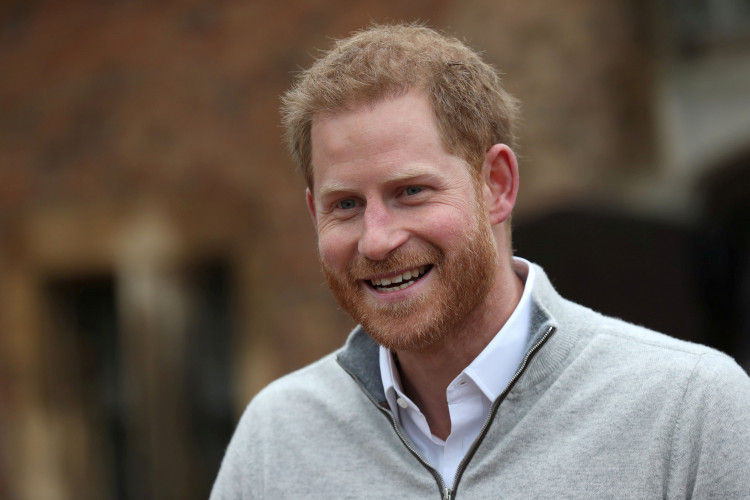A federal judge has ruled that Prince Harry's U.S. visa records will remain sealed, delivering a major victory for the Duke of Sussex amid a legal challenge that sought to make his immigration information public. The lawsuit, filed by the conservative think tank The Heritage Foundation, sought to question whether Harry had received special treatment when entering the United States, particularly after his admissions of drug use in his memoir Spare. However, Judge Carl Nichols ruled that the public's interest in the royal's immigration records is outweighed by his right to privacy.
"The public does not have a strong interest in disclosure of the Duke's immigration records," Judge Nichols said in the ruling made public on Monday. The judgment added that Prince Harry, like any other foreign national, has a "legitimate privacy interest in his immigration status."
The legal battle began after Prince Harry revealed in his book that he had used drugs, including cocaine, marijuana, and psychedelic mushrooms. The Heritage Foundation argued that U.S. law typically bars individuals who admit to drug use from entering the country, raising concerns that the Biden administration may have granted the prince special privileges. The foundation filed a Freedom of Information Act (FOIA) request to access Harry's visa records but was denied by the Department of Homeland Security (DHS). This denial prompted the think tank to sue.
John Bardo, an attorney representing DHS, defended the agency's decision to keep the records private, stating, "Much like health, financial, or employment information, a person's immigration information is private personal information." He also noted that there was no publicly available information indicating that Prince Harry had ever been convicted of a drug-related offense.
Despite the public scrutiny surrounding his visa, Judge Nichols underscored that the Duke of Sussex's privacy interests remained intact, even after his public statements about drug use. "Public disclosure of records about a single admission of a foreign national would provide the public, at best, limited information about the department's general policy in admitting aliens," the judge wrote. He concluded that the limited public benefit of such disclosure was outweighed by Prince Harry's right to privacy.
Prince Harry's memoir Spare, published earlier this year, included candid accounts of his experiences with drugs, including his use of marijuana for therapeutic purposes. "Marijuana is different, that actually really did help me," Harry wrote, contrasting it with his experience of using cocaine, which he said "didn't do anything" for him. The book's revelations triggered a wave of media coverage and questions about his U.S. residency status.
The Heritage Foundation, in pushing for the disclosure of Harry's visa records, argued that U.S. citizens had a right to know if a "privileged prince" had been given special treatment. The organization's legal argument rested on the premise that Harry's drug admissions should have rendered him inadmissible to the U.S., suggesting that either he failed to disclose his drug use on his visa application or U.S. officials ignored it.
While Prince Harry's specific visa type remains unknown, U.S. immigration experts have speculated that he may be on an A-1 visa, typically reserved for diplomats and heads of state. Melissa Chavin, an immigration attorney, previously told GB News that an A-1 visa would focus on concerns such as terrorism, foreign policy, or espionage, and that drug use admissions might not be a disqualifying factor for an individual holding such a visa.
The timing of the ruling could not have come at a more critical moment for Prince Harry, who is currently in New York City for a series of charitable engagements. On Monday, just hours before the court's decision was made public, the Duke of Sussex took the stage at the Diana Legacy Awards to speak about mental health challenges facing young people. He also participated in an event with the Halo Trust, supporting efforts to clear landmines in Angola, a cause his late mother, Princess Diana, championed.
The ruling is likely to stoke further speculation about Prince Harry's legal standing in the U.S., but for now, the court has closed the door on any immediate threat to his residency. Immigration attorney Neama Rahmani told Newsweek earlier this year that unless there was an arrest or conviction related to drug use, it would be highly unlikely for the Department of Homeland Security to revoke Harry's visa.
However, the case has drawn attention to broader political and cultural divides in both the U.S. and the U.K. Former President Donald Trump weighed in on the matter, suggesting that the Biden administration may have given the prince preferential treatment. During an interview with British politician Nigel Farage, Trump hinted that if reelected, he might take a different approach. "We'll have to see if they know something about the drugs, and if he lied, they'll have to take appropriate action," Trump said.
The Heritage Foundation has yet to announce whether it plans to appeal Judge Nichols' decision. In the meantime, the ruling brings an end to the immediate legal challenge over Prince Harry's immigration records and allows the duke to continue his life in the U.S. with his wife, Meghan Markle, and their two children, Archie and Lilibet, in their Montecito home.






